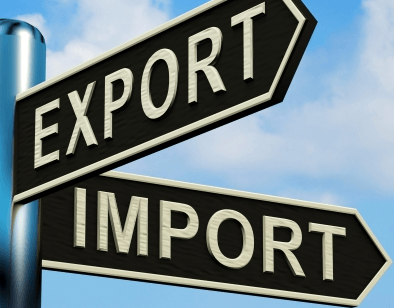Illicit financial flows through trade fraud cost Ghana average 9.3% of GDP – GFI
 Ghana like all developing countries is losing billions of dollars to illicit financial outflows and inflows from trade fraud, according to a new report by the NGO, Global Financial Integrity (GFI). Developing countries overall lost about $620 billion to $970 billion primarily through trade fraud in 2014.
Ghana like all developing countries is losing billions of dollars to illicit financial outflows and inflows from trade fraud, according to a new report by the NGO, Global Financial Integrity (GFI). Developing countries overall lost about $620 billion to $970 billion primarily through trade fraud in 2014.
The report shows that Ghana lost a total of $27.2 billion in 2014 to illicit financial flows from trade misinvoicing in 2014.
Responding to questions from ghanabusinessnews.com, Dr. Joseph Spanjers, an economist with GFI said according to this study, Ghana’s illicit outflows and inflows averaged 9.3 per cent of GDP over 2005-2014.
The study says the combined value of illicit outflows and inflows within the period under review was $184.1 billion.
To curb the growing incidences of trade misinvoicing, Christine Clough, also of the GFI urged that Ghana’s customs department could consider ways to incorporate this issue into its trade risk assessment work.
“One way to do this would be to select a percentage of the invoices they process–import and export–to review against prevailing world market prices for that good, based on the declared harmonized code. An invoice value that falls well outside a normal range could then be flagged for further information gathering or other investigation,” she said.
She indicated further that, there are many ways to decide which invoices to assess, such as those with values above a certain amount, those involving certain goods known to pose higher risks of misinvoicing in Ghana, and those involving a secrecy jurisdiction.
“Ghana could also make sure that it’s clear in its legal code–and then enforced–that manipulating an invoice for the purpose of shifting profits abroad to reduce corporate income taxes paid in Ghana is against the law.
And much could also be gained from the Ghana Revenue Authority, customs, the central bank, and the Financial Intelligence Centre working together and sharing information on the companies engaged in cross-border trade, in order to better spot inconsistencies or strange patterns. Everyone has a piece of the puzzle,” she said.
By Emmanuel K. Dogbevi
Copyright © 2017 by Creative Imaginations Publicity
All rights reserved. This news item or any portion thereof may not be reproduced or used in any manner whatsoever without the express written permission of the publisher except for the use of brief quotations in reviews.
